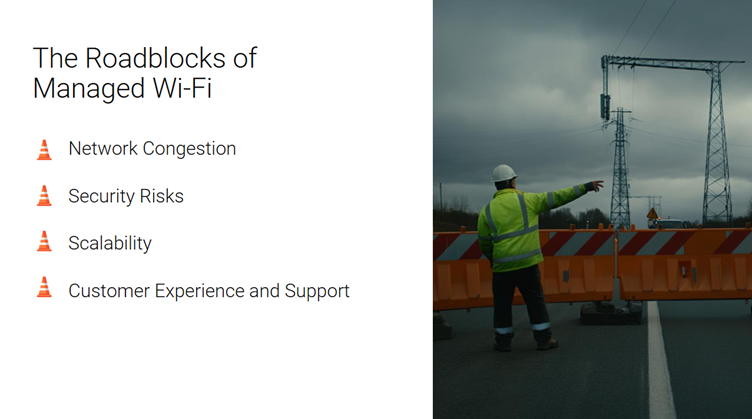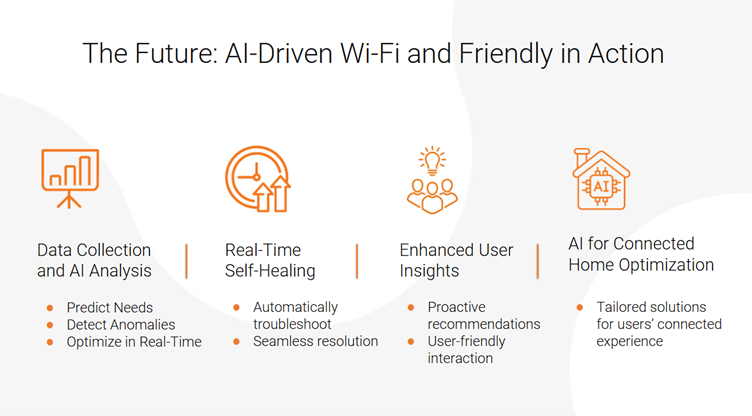 AI-driven managed Wi-Fi solutions are the way forward in improving the connected home experience, explained Ofer Greenberg, VP Business Development at Friendly Technologies. Traditional Wi-Fi networks were not designed to handle the complexity and scale of modern smart homes and their ever-growing populations of connected devices. As Greenberg explained, AI enables networks to adapt to challenges in real-time, automate troubleshooting, and optimize performance, ensuring seamless connectivity and enhanced reliability for users.
AI-driven managed Wi-Fi solutions are the way forward in improving the connected home experience, explained Ofer Greenberg, VP Business Development at Friendly Technologies. Traditional Wi-Fi networks were not designed to handle the complexity and scale of modern smart homes and their ever-growing populations of connected devices. As Greenberg explained, AI enables networks to adapt to challenges in real-time, automate troubleshooting, and optimize performance, ensuring seamless connectivity and enhanced reliability for users.
In recent years, there has been a significant shift toward leveraging analytics, improving customer experiences, and optimizing Wi-Fi networks. This transformation is especially evident in the rise of smart homes, where managed Wi-Fi has become the backbone of seamless connectivity and efficient operation.

“The modern household now averages at least 20 devices connected to the Wi-Fi network,” said Greenberg, exposing the limitations of traditional Wi-Fi systems, which were not designed to handle such high demands. Network congestion, security vulnerabilities, and scalability challenges have become commonplace. Traditional Wi-Fi systems are inherently reactive, relying on manual troubleshooting and basic network diagnostics to resolve issues like connectivity interruptions. They also feature one-way data transmission, which limits their ability to adapt in real-time.
In contrast, managed Wi-Fi solutions enhanced with AI represent a new standard for reliability and performance in smart homes. Unlike traditional networks, AI-driven systems take a proactive approach, adapting to changes in real time, automating troubleshooting, and even predicting and addressing potential maintenance issues before they arise. This delivers enhanced reliability and improved customer satisfaction, setting the stage for smarter, more efficient homes.
At the core of this innovation is a Unified Device Management Platform powered by AI, enabling homeowners to enjoy a more reliable and intelligent Wi-Fi experience. AI-driven Wi-Fi systems offer advanced capabilities such as dynamic bandwidth management, proactive security monitoring, and self-optimizing network performance. These features not only improve the stability and speed of home networks but also provide deeper user insights and more personalized support.

The future of managed Wi-Fi in smart homes is focused on delivering seamless, secure, and adaptive connectivity. With AI continuing to drive advancements, smart home networks are poised to become more robust, scalable, and user-centric, meeting the needs of today’s increasingly connected lifestyles.
